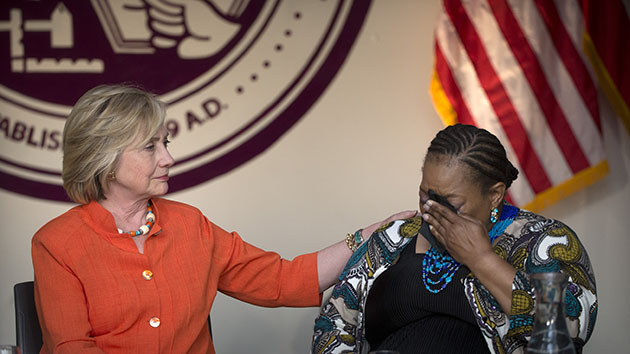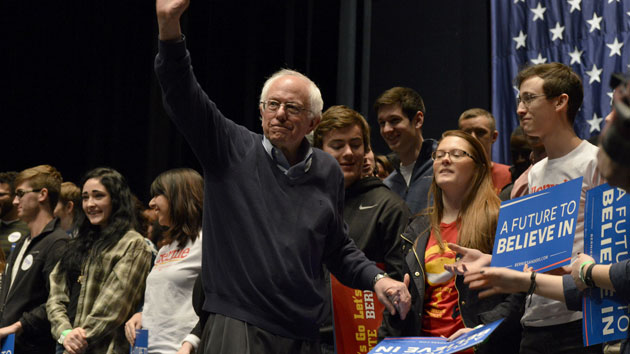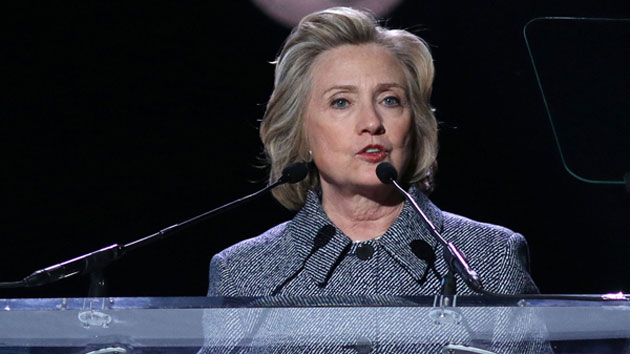
<a href=http://www.apimages.com/metadata/Index/APTOPIX-DEM-2016-Clinton/0a4d7588c97345c3a007153b64fa7351/187/1>Jae C. Hong</a>/AP
After her sound defeat in New Hampshire on Tuesday night, former secretary of state Hillary Clinton is looking ahead to the primary in South Carolina, where she hopes her record and rhetoric on gun control will impress black voters and propel her to victory over Sen. Bernie Sanders of Vermont.
In a conference call Wednesday, Rep. Hakeem Jeffries (D-N.Y.) joined Hazel Dukes—the former NAACP president and current president of the civil rights group’s New York State Conference—and South Carolina state minority leader J. Todd Rutherford to promote Clinton and to cite the inexperience of her rival. The three criticized Sanders as a newcomer to issues important to black voters, and condemned what they called his inferior record on gun control and criminal justice reform.
“I’ve watched Bernie Sanders on the campaign trail and seen how he only really started talking about issues concerning African Americans in the past 40 days,” Rutherford said. “Secretary Clinton has talked about these same issues, and advocated for us, for the last 40 years.”
They also slammed Sanders for only recently moving over to the Democratic party, for voting in favor of the infamous 1994 Violent Crimes Bill, and for voting for an amendment that Jeffries claimed would have allowed Charleston shooter Dylann Roof to obtain a handgun before the completion of a background check.
“We know that Hillary Clinton has consistently stood up against the gun lobby, and spoken out against the epidemic of gun violence in the African American community and beyond. The record of Bernie Sanders is very different,” Jeffries said. “He’s twice voted to shield gun manufacturers, who I often refer to as ‘merchants of death;’ he voted to overturn a ban on guns on Amtrak trains; he voted to make it harder to crack down on gun dealers who break the law; he even voted for an amendment that would have allowed, or which allowed, of course, the Charleston shooter to get a gun before his background check is completed.” If you compare Clinton and Sanders on the issue of gun violence and how it affects the black community, Jeffries added, “it’s not even a close call.”
Jeffries, Rutherford, and Dukes answered reporters’ questions about Clinton’s own, arguably dubious, track record on issues that affect black communities—including her “superpredator” comments—with praise of her political experience and her platform for economic justice. But the overarching theme of the call was that Clinton, unlike Sanders—who represents a predominantly white state—has always been a visible presence in the black community.
“It’s good to have new friends, but I would rather have true friends,” Jeffries said.










